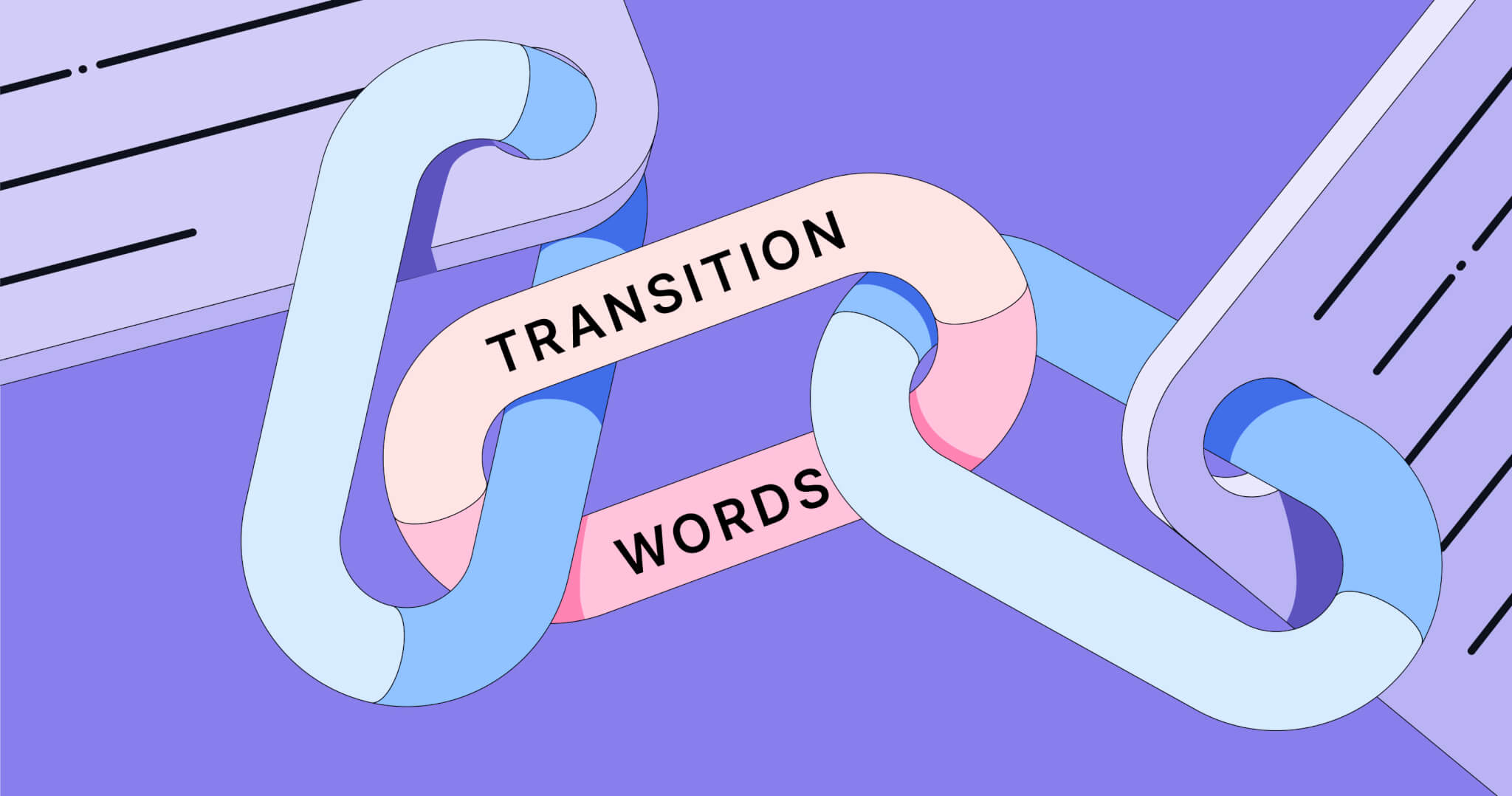How to Make an Essay Longer - The Complete Guide to Boosting Your Word Count
How to Make an Essay Longer: The Complete Guide to Boosting Your Word Count
Writing an essay can be a challenging task, especially when you're struggling to hit a specific word count. Many students encounter this issue, and it can be quite stressful to figure out how to add meaningful content without resorting to filler. If you find yourself asking, "How can I make my essay longer without just adding fluff?" you're in the right place. This guide will take you step-by-step through practical strategies to lengthen your essay in ways that add genuine value and improve its overall quality. We'll cover actionable techniques that are designed to help you meet your word count requirements while simultaneously making your essay stronger, more detailed, and more engaging. By following these methods, you'll not only reach the desired length but also enrich the content of your writing, making it more compelling for your reader.
What to Expect From This Guide
- Introduction to Essay Lengthening: Understand why reaching the word count matters and how to do it effectively, and explore the importance of adding substance rather than simply stretching out your content. Reaching a specific word count can feel daunting, but with the right strategies, it becomes an opportunity to improve the quality of your work by thoroughly exploring your topic. This section will help you understand how effective lengthening contributes to clarity, depth, and reader engagement.
- 10 Proven Strategies to Make Your Essay Longer: A comprehensive list of practical tips to help you increase the word count while adding depth. Each strategy is designed not only to add words but also to enhance the quality and persuasiveness of your arguments. We'll cover methods that are suitable for any type of essay, ensuring that you can apply these tips regardless of your subject or topic. From adding detailed examples to including quotes and opposing views, these strategies will ensure your essay is complete and impactful.
- Frequently Asked Questions: Address common questions and concerns about essay length, including the best ways to add meaningful content without resorting to fluff. We’ll also discuss the challenges of expanding different parts of your essay, such as the introduction, body paragraphs, and conclusion. This section will provide answers that guide you in making thoughtful additions that genuinely improve your essay's quality.
- Final Thoughts: Wrapping up with key takeaways to make your essay both longer and better. We’ll also discuss how to maintain coherence and flow while expanding your essay, ensuring that every word serves a purpose. By following these strategies, you’ll learn how to write essays that are not only longer but more insightful, engaging, and well-rounded, ultimately boosting your confidence in essay writing.
Why Is Essay Length Important?
Hitting the required word count is often about more than simply meeting a number; it shows that you have thoroughly explored a topic, supporting your arguments with enough evidence and detailed analysis. Meeting the word count demonstrates that you have fully engaged with the topic, thought critically about various aspects, and put in the effort to convey your ideas in a comprehensive manner. Essays with greater depth often convey complex thoughts more effectively, which is essential in both academic and professional settings. Providing enough evidence ensures that your arguments are robust and persuasive, leaving little room for doubt. In academic contexts, this thoroughness indicates that you have conducted sufficient research, thought deeply about the subject, and synthesized the information effectively.
Furthermore, longer essays with well-developed arguments allow you to present multiple perspectives and address potential counterarguments. This comprehensive approach adds nuance to your essay and showcases your ability to think holistically. In professional settings, the ability to convey a topic thoroughly is also highly valued, as it demonstrates your communication skills, attention to detail, and depth of understanding.
However, it's equally crucial that the added content enhances the quality of your essay instead of making it repetitive or filled with fluff. It's important to avoid simply adding words for the sake of meeting a quota. Instead, focus on making every sentence count—each new idea, piece of evidence, or elaboration should add real value to your argument. Quality over quantity is key; thoughtful additions that deepen your analysis are always preferable to filler content that lacks substance. Ultimately, hitting the required word count should be about doing justice to the topic at hand and ensuring that your arguments are both compelling and well-supported, rather than just padding your essay with unnecessary words.
10 Proven Strategies to Make Your Essay Longer
Here, we'll go over 10 effective methods to add meaningful length to your essay. Each of these techniques is designed to help you expand your ideas, provide more context, and make your essay more engaging for the reader. These strategies aren't just about adding more words—they’re about adding substance that enhances the overall quality of your essay. Whether you need to provide additional examples, dive deeper into your analysis, or include more perspectives, these techniques will guide you in making thoughtful additions that enhance clarity and depth. Not only will this help you reach the required word count, but it will also make your essay stronger and more informative. We’ll also discuss how to ensure that these expansions flow naturally within your writing, making the added content feel integral rather than forced. Each method will help you add content that is valuable, relevant, and ultimately serves to make your writing more compelling and comprehensive.
1. Expand on Your Supporting Ideas

The simplest way to make your essay longer is to revisit each of your supporting points. Ask yourself: Are there additional details, examples, or statistics that you can provide to enhance the depth of your argument? Think about any areas where you may have summarized too briefly or where further elaboration could provide additional clarity and support for your thesis. Expanding on these supporting points allows you to reinforce your argument while adding substantial content that adds value.
For example, if you have a supporting point that discusses a particular piece of evidence, consider whether you can include more background information about this evidence. What is the origin of this information, and why is it credible? Adding such context not only bolsters your argument but also adds significant word count without appearing forced. Additionally, you can analyze your supporting points from multiple angles. Are there any counterarguments or alternative viewpoints that you can address directly within each point? By doing this, you not only make your argument stronger but also lengthen your essay in a meaningful way.
Moreover, try to identify any possible questions that your readers might have regarding your supporting points. Are there elements that may require further clarification? Addressing these questions in detail adds depth to your essay and makes your argument more comprehensive. Another effective approach is to explore how each supporting idea is interconnected. By showing the relationships between your supporting points and demonstrating how they build upon each other, you can naturally expand the discussion and provide a richer narrative that contributes to both the length and coherence of your essay. Expanding your supporting points helps you add quality content, making your essay richer in substance and more persuasive to the reader.
2. Add Transitional Phrases and Sentences

Transition sentences not only make your essay flow more smoothly but also help increase your word count. These sentences and phrases work as bridges, connecting different ideas and ensuring a seamless progression from one point to another. Phrases like "on the other hand," "in addition to," "furthermore," "consequently," "as a result," "similarly," and "not only... but also" are particularly useful for linking thoughts in a logical sequence. This helps guide your reader through your arguments, making the structure of your essay more cohesive. Adding these kinds of transitions can subtly lengthen your essay by adding a few extra words each time, but more importantly, they provide clarity and enhance the overall flow.
Consider using transitions not only between paragraphs but also within them. For example, if you are discussing multiple related ideas in one paragraph, using phrases such as "another aspect to consider is," or "a related point is," can help to make the connections between these ideas clearer and add coherence. Including transitional phrases within your arguments ensures that each piece of evidence ties in smoothly with the next, helping your essay feel more unified and well-thought-out. Additionally, transitional phrases can be used to introduce counterarguments or new sections, providing a natural lead-in that enhances readability while increasing word count.
Using a variety of transitions also adds sophistication to your writing style. Instead of simply listing points, transitions allow you to show how each part of your argument builds upon or contrasts with the others. This helps you maintain a logical flow throughout, ensuring that your reader fully grasps the relationships between your ideas. Ultimately, transitional phrases not only boost your word count in a meaningful way but also enhance the readability and persuasiveness of your essay.
3. Expand Your Introduction and Conclusion

The introduction and conclusion provide great opportunities to add length to your essay. In the introduction, you can add more background information or set a broader context for your topic. Start by providing a compelling hook that grabs your reader’s attention—this could be an interesting fact, a thought-provoking question, or a relevant anecdote. Then, expand on the background information to give your readers a clearer understanding of why the topic is important. This could include a brief history, relevant definitions, or a description of the current state of the issue. Adding this additional context not only lengthens your introduction but also sets a solid foundation for the reader, ensuring that they are well-prepared to understand your arguments.
Consider also clarifying your thesis by breaking it down into several components or explaining its significance in more detail. What motivated you to take this stance? What is the potential impact of your argument? By elaborating on your thesis statement, you not only add word count but also strengthen your essay's introduction.
For the conclusion, go beyond merely summarizing your main points. Recap each of your arguments with additional emphasis on why they are important and how they contribute to your thesis. Instead of simply listing your points again, take the opportunity to synthesize the information you presented, showing how all of your arguments come together to support your thesis comprehensively. Discuss the wider implications of your argument—what does your discussion mean for the broader field of study or for society as a whole? Are there any potential consequences or future trends that could be influenced by your findings?
You could also include a call to action or a thought-provoking statement that leaves a lasting impression on your reader. Encourage them to think further about the topic or consider how it might relate to their own experiences. This not only lengthens your conclusion but also adds a deeper level of engagement. The goal is to frame your argument completely and leave your reader with a sense of closure while naturally adding more words to your essay in a meaningful way.
4. Include Quotes and Explain Them

Using quotes from credible sources not only adds authority to your essay but also helps you meet the word count. When you include a quote, you are bringing in an external voice that lends credibility and reinforces your arguments. However, it’s important that you don’t just drop a quote in without context—be sure to introduce the source and explain why the quote is relevant. After introducing a quote, make sure to thoroughly explain its significance and how it ties into your argument. This analysis should not be superficial; delve into why the quote matters, what it adds to your point, and how it supports your thesis.
Think of a quote as an opportunity to engage with another author’s perspective. You could explain how the quote adds nuance to your discussion, provide an interpretation of its meaning, and even address potential counterarguments that the quote might suggest. It’s also useful to compare the quote with your own ideas, showing how it aligns or contrasts with the points you’re making. This detailed analysis not only adds more depth to your essay but also boosts your word count in a meaningful way.
Additionally, you can explore the broader implications of the quote. What does this evidence suggest about the topic as a whole? How does it contribute to the larger conversation you’re participating in? By connecting the quote to the bigger picture, you’re adding length while giving your essay more depth and context. The key is to make every quote count by turning it into a point of rich discussion rather than merely using it as a space-filler. This adds valuable content without feeling like filler, as each quote and its analysis will be contributing significantly to your argument and enhancing the reader's understanding.
5. Elaborate on Opposing Views

Adding a section about opposing viewpoints shows that you’ve considered multiple perspectives, which is crucial for building a well-rounded and balanced argument. Acknowledging different sides of an issue demonstrates that you are not just promoting one view blindly but have critically assessed various perspectives. Start by identifying some of the most common opposing arguments related to your topic. Make sure to present these opposing views fairly and accurately, so the reader understands that you respect other perspectives, even if you disagree with them.
Once you have presented these counterarguments, explain why your position is stronger by providing solid evidence and logical reasoning. Use specific examples, statistics, or expert opinions to show why the opposing viewpoint may be flawed or incomplete. For instance, if the opposing view has a weak point or an assumption that can be questioned, point it out and explain why your perspective offers a more comprehensive understanding of the issue. This not only lengthens your essay but also makes it more convincing and sophisticated.
Furthermore, consider elaborating on the potential consequences of adopting the opposing viewpoint versus the benefits of your position. Highlighting the differences in potential outcomes can make your argument more compelling. You can also include a discussion of any partial agreements you have with the opposing side. Recognizing where the opposition might have a valid point, and then explaining why your overall argument still holds more weight, adds nuance and depth to your essay.
Addressing opposing views thoroughly can help your reader see the issue from multiple angles before concluding why your stance is more valid. This approach not only enriches the content and depth of your essay but also leads to a significant increase in word count by offering a broader analysis of the topic. Ultimately, the goal is to strengthen your argument by pre-emptively countering the points that others might use to challenge your position, ensuring that your essay is both persuasive and well-supported.
6. Go Into More Detail

Look for areas where you've summarized an idea, and expand on it. Instead of glossing over complex concepts, explain them in more detail. This approach not only adds length but also ensures that your reader fully understands your points and engages more deeply with your argument. Answer questions like: How does this work? Why is this important? What are the underlying processes or principles that drive this concept? Providing detailed explanations adds richness to your essay, and it also helps clarify your stance for readers who may not be familiar with the subject matter.
Consider breaking down each point into its components. For instance, if you mention a particular theory, go deeper by explaining its origins, who proposed it, and how it evolved over time. This additional context not only helps with word count but also positions you as well-informed on the subject. If your essay includes statistics, elaborate on how those numbers were derived, what methodologies were used, and why that matters. Are there multiple interpretations of the data? If so, explore those interpretations and explain why one might be more convincing than the other.
You can also make connections to real-life applications. How does the concept you’re discussing impact everyday life or specific industries? Are there practical examples or case studies that illustrate how this idea works in action? Adding these connections allows readers to see the real-world relevance of your arguments, thereby making your essay more compelling and informative.
Moreover, think about adding expert opinions or contrasting perspectives. When you explain an idea, consider whether there are differing opinions on the matter. Include these viewpoints and then analyze them—what makes your viewpoint more valid or compelling? This not only enriches your argument but also demonstrates critical thinking, making your essay more well-rounded. Addressing potential questions that readers might have, like "Are there any limitations to this approach?" or "What are the implications of this idea in the broader context?" will also give you opportunities to elaborate further.
Ultimately, expanding on details means taking a magnifying glass to your content and examining every aspect of your arguments. By doing so, you provide a more comprehensive discussion that not only increases the length of your essay but also adds value and depth, ensuring that your writing is informative, persuasive, and thoroughly engaging.
7. Use Examples and Anecdotes

Providing real-world examples, case studies, or personal anecdotes can be a great way to illustrate your points. These examples make abstract concepts more tangible and help you add natural length to your writing, making your essay more relatable and engaging for the reader. When you incorporate examples, try to be as specific as possible. For instance, instead of simply mentioning that a concept has practical applications, describe a real-world scenario where that concept was successfully applied. This helps ground your argument in reality, giving readers a clear picture of its implications and utility.
Case studies are particularly powerful because they offer a detailed exploration of a situation or issue. Including a case study that directly relates to your topic allows you to demonstrate the real-life impact of your arguments. You could discuss the background of the case, what happened, and why it’s significant, providing step-by-step details that add considerable length and depth to your essay. For example, if you’re writing about leadership techniques, you might include a case study about a well-known business leader who used those techniques to successfully overcome a crisis. This not only bolsters your argument but also adds a storytelling element, which can captivate your audience.
Personal anecdotes can also be very effective, especially when writing persuasive or reflective essays. Sharing a personal story that relates to your argument helps create an emotional connection with your readers, making your essay more memorable. Be sure to tie the anecdote back to your main point, explaining how your personal experience exemplifies the concept you are discussing. This not only provides more content but also humanizes your writing, making it more relatable.
In addition to individual examples and anecdotes, consider using a variety of different types of examples to support your points. For example, you could include statistical examples to add a quantitative perspective, historical examples to provide context, and hypothetical examples to illustrate potential scenarios. Each of these types of examples enriches your essay by offering multiple layers of support, making your argument more robust and comprehensive. Remember to ensure that all examples are directly related to your argument and help clarify or expand upon the points you are making. By thoughtfully incorporating different types of examples, you add both length and substance, making your essay more effective overall.
8. Restate Key Points in Different Ways

Restating complex points or key ideas in different ways can help reinforce your argument while adding length. Restating allows you to emphasize important aspects and ensure that your reader fully grasps the significance of your arguments. However, avoid being redundant—find new angles to approach the same idea. Think about how you can reframe your key points from different perspectives, provide an alternate explanation, or add a new layer of context. This adds variety and depth without being repetitive.
For example, if you are explaining a key theory, you might restate the core idea by simplifying the language for readers who may not be as familiar with the terminology. Alternatively, you could draw an analogy or use a metaphor to illustrate the same concept in a more engaging way. These different approaches not only reinforce understanding but also make the content more accessible to a diverse audience. Adding these different types of restatements can naturally increase the length of your essay, making it richer in content.
Another effective way to restate key points is to relate them to different contexts. If you’ve made a point about how a concept applies to one specific scenario, think about how it might apply in a broader or different context. For instance, if you’re discussing an economic theory, explain how it might also relate to environmental policy or social issues. By showing how your key ideas are versatile and applicable across multiple domains, you give your argument more breadth and relevance.
Additionally, consider restating key points by incorporating supporting evidence that approaches the argument from another angle. If you initially explained a point using a statistic, restate it using a quote from an expert, or provide a historical example that reinforces the argument. By bringing in varied types of support, you enhance the reader’s understanding while also adding valuable length to your essay. This ensures that your restatements are not merely repetitive, but are adding new insights and creating a more engaging reading experience.
9. Add Descriptive Language

Use descriptive language to create a vivid picture for your reader. Adding detail, whether about a setting, a historical event, an emotional experience, or an abstract idea, makes your essay richer and helps you reach the desired word count. By painting a vivid picture, you invite the reader to fully immerse themselves in your writing, which can make your arguments more persuasive and your overall essay more engaging. For instance, instead of simply stating that an event happened, describe the atmosphere, the emotions involved, the sights, sounds, and even the smells if applicable. This kind of sensory detail can transform a basic statement into an engaging narrative that draws the reader in.
Consider using descriptive language not only for physical settings but also when discussing abstract concepts. If you are explaining a complex idea, use metaphors, analogies, and detailed descriptions to break it down into something relatable and easier to understand. For example, if you are writing about a challenging concept like quantum physics, you might describe it in terms of something familiar, such as comparing the movement of particles to the unpredictable paths of leaves caught in a gusty wind. This helps the reader visualize what you are discussing and makes your essay feel more accessible.
When discussing historical events, descriptive language can help bring the past to life for your reader. Instead of saying, "The battle was intense," you could describe the chaos, the noise of clashing weapons, the shouts of soldiers, and the fear in their eyes. Such details make your narrative more vivid and give your readers a sense of being present at the scene, which deepens their understanding and connection to the material.
Additionally, use descriptive language to evoke emotions that align with your argument. If you want the reader to feel a particular way about your topic, carefully chosen descriptive phrases can help create that emotional response. For example, if you are arguing that pollution is a severe problem, describing the suffocating effect of smog, the lifeless waters of polluted rivers, or the distressing sight of wildlife struggling to survive can elicit empathy and a sense of urgency. This not only extends your word count but also reinforces the emotional weight of your argument.
Just be mindful to avoid overloading your essay with unnecessary adjectives and overly flowery language. Each description should serve a purpose—enhancing clarity, adding depth, or evoking emotion. Striking the right balance ensures that your essay is vivid and engaging without becoming bogged down with excessive detail.
10. Proofread and Identify Areas for Expansion

Once you've completed your essay, go back and proofread it with an eye for expansion opportunities. Look for areas that could benefit from additional context, further clarification, or added examples. Are there sections where your argument could be elaborated more thoroughly? This might include expanding on the significance of a particular point or providing more background information that would make the argument clearer. Look for any statements that are too brief—these are great opportunities to add more substance.
Consider whether there are any questions a reader might have after reading a particular section. If there are potential areas of confusion, adding further explanation or rephrasing can make your essay more comprehensive. For instance, you might find a statement that could benefit from a concrete example to better illustrate your point, or you might see where adding a brief anecdote would help clarify an abstract idea.
Also, pay attention to transitions between paragraphs and sections. Could you make these transitions smoother or more elaborate? Adding a few additional sentences that explicitly link one section to the next can not only add length but also improve the flow of your essay. Sometimes adding a short summary of the preceding paragraph before diving into a new topic can provide a seamless transition while also contributing to the overall word count.
This approach allows you to add length without compromising on quality. Expanding thoughtfully on existing content, providing more context, and adding examples or elaboration all serve to make your essay more engaging and informative for the reader. By carefully revisiting and refining each part of your essay, you can identify many opportunities for expansion that genuinely improve your work while increasing its length in a natural and effective manner.
Frequently Asked Questions
Q: How do I make my essay longer without adding fluff?
- A: Focus on adding more evidence, examples, and expanding on your arguments. Elaborate on key points and make sure each addition contributes to the overall quality of the essay.
Q: Is it okay to use quotes to increase word count?
- A: Absolutely, as long as the quotes are relevant and you take time to explain their significance in relation to your argument.
Q: Can I expand my introduction or conclusion to meet the word count?
- A: Yes, but make sure you’re adding valuable context or synthesis of your points rather than repeating yourself.
Q: How can I make my essay more engaging while increasing its length?
- A: To make your essay more engaging, focus on using vivid language, descriptive details, and real-world examples. Adding anecdotes, quotes, and varied sentence structures can also help capture the reader's interest while contributing to the word count.
Q: What types of examples should I include to lengthen my essay?
- A: Use a mix of real-world examples, case studies, personal anecdotes, and hypothetical scenarios. Each type of example adds a unique layer of context that can enrich your essay and provide a more comprehensive understanding of your arguments.
Q: Can I add opposing viewpoints to make my essay longer?
- A: Yes, including opposing viewpoints adds depth and balance to your essay. Discuss the counterarguments, and then explain why your perspective is more valid. This not only increases word count but also strengthens the persuasiveness of your argument.
Q: Is it better to expand each paragraph or add new sections to make my essay longer?
- A: Both approaches can be effective. Expanding each paragraph allows you to add depth and detail to your existing arguments, while adding new sections can help introduce new perspectives or additional supporting evidence. The key is to ensure that any additions are relevant and enhance the overall quality of your essay.
Final Thoughts
Making an essay longer without compromising quality is all about adding depth and value. Focus on expanding your arguments, providing more evidence, and including additional analysis. With these techniques, you'll be able to meet the required word count while also creating a more compelling and well-rounded essay. Remember, your aim should be to improve the reader's understanding and appreciation of your topic—not just to hit a number.
To truly make your essay effective, consider the needs of your audience at every stage. Ask yourself if each addition is meaningful—does it clarify a point, provide deeper insight, or make your argument stronger? The goal should be to create a fuller, richer essay that leaves no questions unanswered. Think of every paragraph as an opportunity to offer something valuable to the reader, whether it’s through providing new evidence, adding nuance to an argument, or exploring a related perspective.
Another key aspect to remember is coherence. As you expand your essay, ensure that your ideas flow smoothly from one to the next. Transitions are critical in this regard, helping to maintain the reader’s engagement and understanding. The best essays don’t just present information; they guide the reader through a logical progression of ideas. The more seamlessly you can connect these ideas, the more compelling your expanded essay will become.
Additionally, revisiting your thesis and ensuring it aligns with the expanded content is essential. Sometimes adding new evidence or perspectives can alter the scope of your argument slightly. It’s a good idea to refine your thesis after you’ve expanded the body of your essay to make sure it fully captures the depth of what you’re discussing. This refinement not only improves the overall quality of your essay but also ensures that every part of your writing contributes cohesively to your central message.
Lastly, don’t be afraid to add a personal touch where appropriate. Essays that resonate with readers often include a hint of the writer's own voice—an insight, reflection, or unique perspective. This personal element can add length in a way that feels natural while also making your writing stand out. Whether it’s a reflective comment on why the topic matters to you or an anecdote that ties into your argument, these personal touches can enhance both the length and impact of your essay.
Take Action Now that you've got these strategies in your toolkit, go ahead and revisit your essay. Use these techniques to expand it, enhance the quality, and reach the required word count in a meaningful way. Good luck!
Other Articles You Might Like
How to Use EasyBib for MLA Citations: A Step-by-Step Guide
Easy Bib MLA is a free tool that helps you create citations for your essays and papers. It's easy to use and free to use. It's a great way to make sure your citations are correct and to save time.
What is a Literature Review? Complete Guide for Students
Learn everything you need to know about writing a literature review, from understanding its purpose to organizing your research effectively. This comprehensive guide includes examples, templates, and expert tips for crafting compelling literature reviews.
How to Write a College Essay That AI Reviewers Will Rank Highly
Learn the key elements that AI essay review systems look for in successful college essays and how to optimize your writing to receive high ratings while maintaining authentic voice and content.
How AI Writing Assistants Are Revolutionizing the Publishing Industry
An in-depth examination of how AI writing technologies are transforming workflows, expanding capabilities, and creating new possibilities across all sectors of publishing, from books and magazines to academic journals and digital content platforms.
How Ethical is Using AI to Review Your College Essays?
An in-depth exploration of the ethical considerations surrounding AI essay review tools for college applications, with guidance on responsible use and insights from admissions professionals.
The Ultimate Guide to Using AI for Writing an Essay
In recent years, artificial intelligence has revolutionized many facets of our lives, from the way we interact with technology to how we create content. One question that often comes up is: Can I use AI to write an essay? The answer is a resounding yes, but there are nuances that one must understand. AI can be a powerful tool for writers—both students and professionals—and when used wisely, it can help elevate the quality of your work, save time, and reduce the stress often associated with the writing process. In this comprehensive guide, we'll delve into how AI can assist in writing an essay, the benefits it offers, limitations, and best practices for making the most out of these tools.
